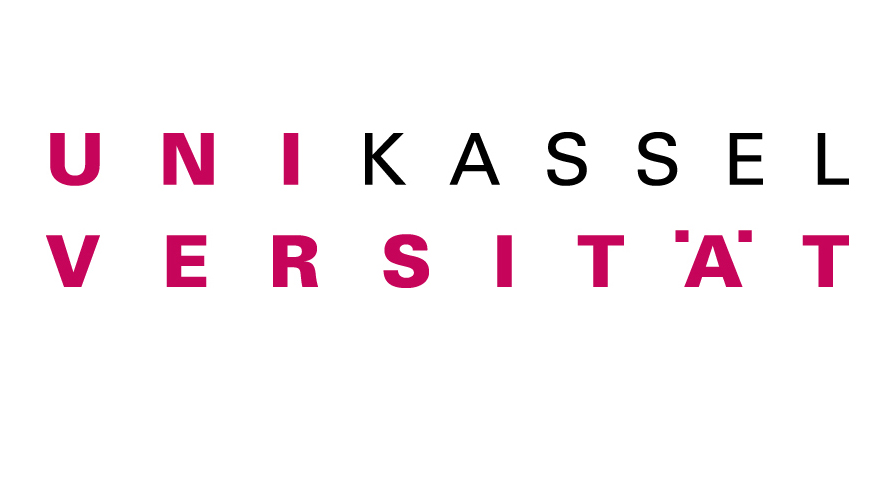This page contains automatically translated content.
University expands cooperation with experimental schools in the region

Which competencies can be particularly promoted through free learning at the Open School Waldau? How do the students evaluate the graduation concept of the Reform School Kassel? Does the graduation concept at Steinwaldschule Neukirchen have a positive effect on work and social behavior? What changes in the teaching and learning culture result from distance learning after the pandemic? Researchers from the university and teachers from the three schools want to systematically investigate these and other questions together.
The president of the university, Prof. Dr. Reiner Finkeldey, the managing director of the Institute of Educational Science, Prof. Dr. Ralf Mayer, the head of the Reform School Petra Fichtner-Gade, Manuel Coote, head of the Open School Waldau, and Olaf Rödiger, head of the Steinwald School Neukirchen, have now signed an agreement on a strategic partnership for this purpose. Thematic focal points will be the development, testing and research of new (digital) teaching concepts, the implementation of elements of inclusive schools, effects of school selection and transitions of the three schools. "This cooperation once again shows that educational science at our university is one of the pacesetters in research and teaching, also through close feedback with practice at the schools," President Finkeldey was pleased to say.
BACKGROUND:
Reformschule Kassel, Steinwaldschule Neukirchen and Offene Schule Waldau as learning schools
Manuel Coote, head of the Open School Waldau, emphasized: "Particularly in times of social crisis, such as the Corona crisis, it becomes clear to all of us that only through learning and constant further development can people and institutions meet the ever-increasing demands of today. Thus, the comparison of our own school development steps, especially in the development of a learning culture of "digitality" with the latest scientific findings and the constant evaluation and monitoring by the university is a central element of our quality development for us experimental schools. This is the only way we can offer all of our students the best possible conditions for success in a society that is constantly changing at an ever faster pace. We want to continue to provide our students with the best possible support in their learning and personal development in the future.
Petra Fichtner-Gade, head of the Reformschule Kassel, added from her point of view: "In the past, we have evaluated and successfully further developed our concepts of mixed ages, grade level transitions and open beginnings as part of our cooperation with the University of Kassel. For the future, we are focusing on the further development of digitization as a tool for individualized learning, with its opportunities and stumbling blocks."
For Olaf Rödiger, head of Steinwaldschule Neukirchen, "under the special conditions and challenges for an all-day school in a rural area, the consistent further development and implementation of internal differentiation in the sense of individualizing learning processes has the highest priority. Development priorities for the Steinwald School are the restructuring of learning spaces (new room concept, establishment of the partially open learning landscape) and the linking of work and social behavior with individual rights and obligations in the sense of graduation. The digital monitoring and control of individual learning processes and the accentuation of self-diagnostic processes, also in digital form, are becoming increasingly important."
"A common goal of the strategic partnership is the further development of the schools on the basis of the results obtained from research projects. With the documentation of the research results, a prerequisite is created for making model practice accessible to other schools," Prof. Dr. Barbara Koch, head of the experimental schools working group, pointed out.
"Everyone involved can benefit from the networking of university research and teaching with the work of educational institutions in the region, precisely because of the different perspectives and approaches," emphasized Prof. Dr. Ralf Mayer. "In this way, university teacher education receives diverse impulses, for example, in the context of the relationship between theory formation, a reflective empirical examination and practice. Schools, in turn, can question selected aspects and concepts of their pedagogical activities in relation to current scientific debates." Student teachers and students in the master's program in Empirical Educational Research are involved in the research projects in order to learn about school-based research. Researchers gain insights into innovative school-based practice that can be used in teaching in a case-oriented manner.
For example, Prof. Dr. Hans Peter Kuhn reports from a research project: "Our results report on free learning is designed as an instrument for school development at the OSW in that teachers, school management and especially those responsible for free learning can access a very extensive pool of results from data evaluation, selectively pick out results and interpret them against the background of their knowledge and intentions and use them for further measures of school development."
Contact:
Prof. Dr. Barbara Koch
University of Kassel
Department of School Education, Focus on School and Instructional Development
Head of the Experimental Schools Working Group
Phone: +49 561 804-3970
E-mail: barbara.koch[at]uni-kassel[dot]de